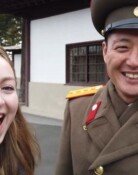Journalism of Suki Kims infiltration into North Korea
Journalism of Suki Kims infiltration into North Korea
Posted December. 11, 2014 06:39,
Without you, there is no us, a travel essay written by Korean American writer Suki Kim, is under subtle controversy over writers ethics. The book was based on her experience as a teacher who taught students at Pyongyang University of Science and Technology for six months in 2011. In an interview with the New York Times, the universitys President Kim Jin-kyung said, I am very angry at Suki Kims attitude, book, and lies. She cheated us, adding, Especially, her statement that professors are missionaries is a groundless claim. Kim Jin-kyung would be facing many difficulties as he is striving to run a university in Pyongyang.
In her blog, Suki Kim tried to excuse herself. Around the time when I visited North Korea three times as a reporter, I felt that unless I settle down there, I would only advertise the North, and would never be able to write meaningful stories. Then, I had a chance to teach at Pyongyang University of Science and Technology. I used my real name, and the university was aware that I was a writer. I never signed a confidentiality agreement, and never promised that I would not write stories. Professors of the university are not engaged in missionary activities nor are they allowed to, but their goal is to open a beachhead for missionary activities in the North.
South Korean novelist Hwang Seok-yeong wrote a rather uncanny travel essay entitled There were people living there after visiting the North for about three months in 1989. Compared with Hwangs piece that only presents what Pyongyang showed him, Suki Kims book shines out due to her pursuit of truth through undercover journalism. Cleverly, she knew how to utilize special characteristics of Pyongyang University of Science and Technology, the only private university in the Stalinist state. However, her mention of missionaries is regretful because she failed to be considerate enough to avoid telling things that should not be told.
In 1956, former Soviet Union writer Aleksandr Solzhenitsyn wrote Arkhipelag Gulag, which made West intellectuals who remained silent on the Stalinist regime, feel ashamed of them. In South Korea, North Korean defectors vivid testimonies have played the role of "Arkhipelag Gulag" since the 1990s. There are still people like Korean American Shin Eun-mi who claims North Korea is a vibrant place only after lightly traveling the North several times. Suki Kim shrewdly captured in her book ignorance and anxiety wrought about by the repressive regime even to children of North Korean elite class.







